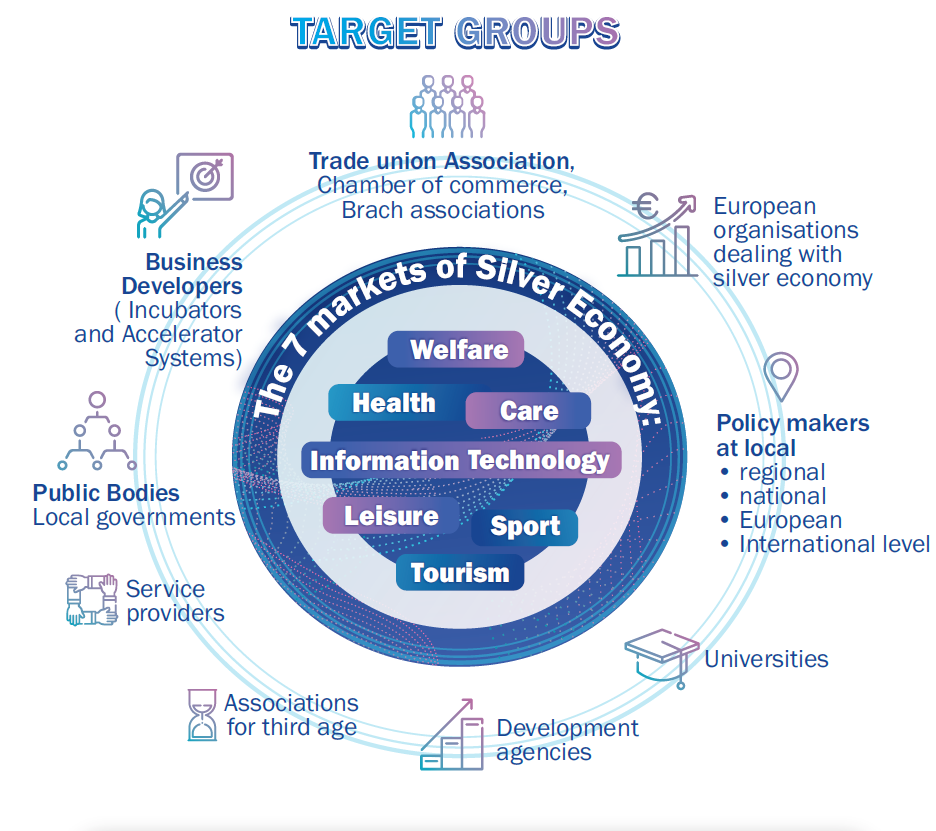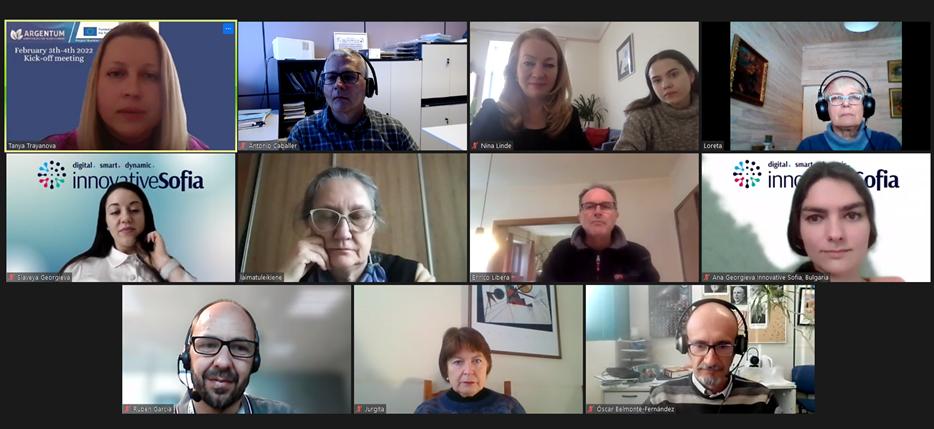The Cuatroochenta Chair of Artificial Intelligence, Health and Wellbeing will be responsible for designing an online and interactive learning platform so that administrations and companies involved in the development of services and goods aimed at the elderly know how they can promote the healthy ageing of this population group. It will include all kinds of resources, such as videos, virtual whiteboards, forums or drag-and-drop activities, which will serve as guidance material to improve products and services aimed at meeting the needs of people over 50 years of age. This platform, therefore, pursues a twofold objective.
Firstly, it aims to provide training courses for agents involved in the production of the silver economy, such as European organizations, business development companies, associations of senior citizens and universities. These courses will train participants in the integrated design of innovative services for the elderly. To this end, the seven markets of the silver economy will be addressed: information technology, wellness, health and care, tourism, leisure and sports, and education.
Secondly, local governments will be trained to promote innovation in local administrations, for example through innovative social services and support measures for healthy ageing.

The e-learning platform will train actors involved in the silver economy in the promotion of active ageing across the seven markets.
This initiative is part of the Erasmus+ ARGENTUM Strategic competencies for Silver Economy project in which the professors of the Universitat Jaume I of Castelló and co-directors of the Cuatroochenta Chair, Óscar Belmonte Fernández and Antonio Caballer Miedes, participate. The main objective is to create an Innovative Cluster for the silver economy in order to provide customized training courses, improve collaboration and give visibility to all relevant actors for the sector.
The two professors presented this project to their European partners at the first kick-off meeting of the ARGENTUM network, held on February 3 and 4 online. The other participants also presented their objectives and methodologies:

Objectives and methodologies
These first meetings were attended by representatives of the consortium composed of local administrations, universities, VET centres, research centres and SMEs. Due to COVID-19 restrictions, the initial meeting, which was scheduled to take place in Sofia, Bulgaria, was cancelled. The team plans to meet again in a few months in person, if the evolution of the pandemic allows it. All these initiatives are expected to be in place by the end of 2023.